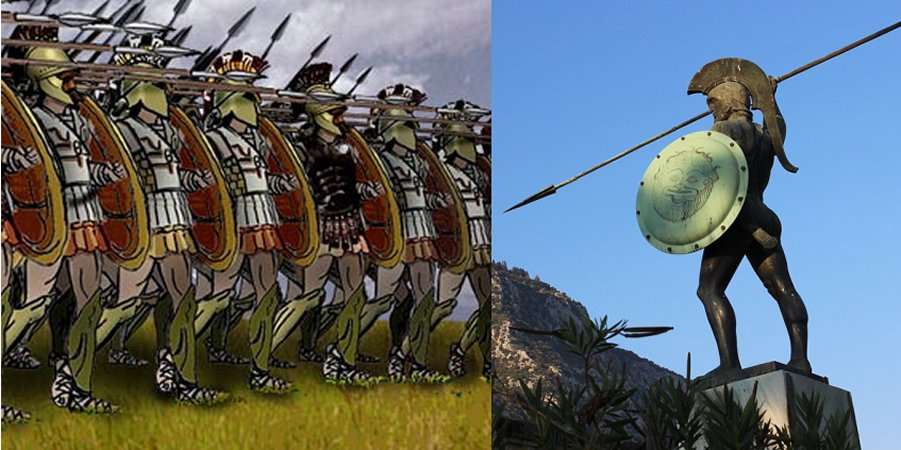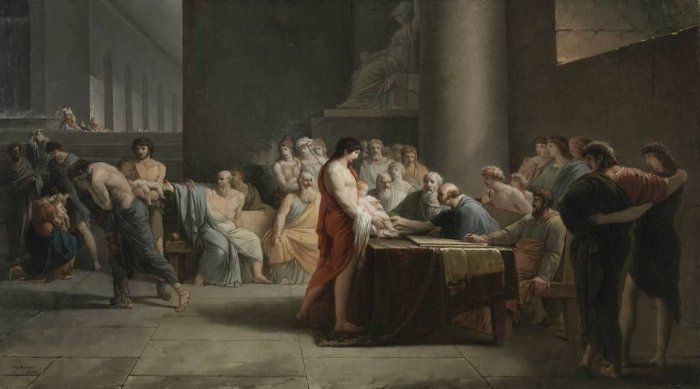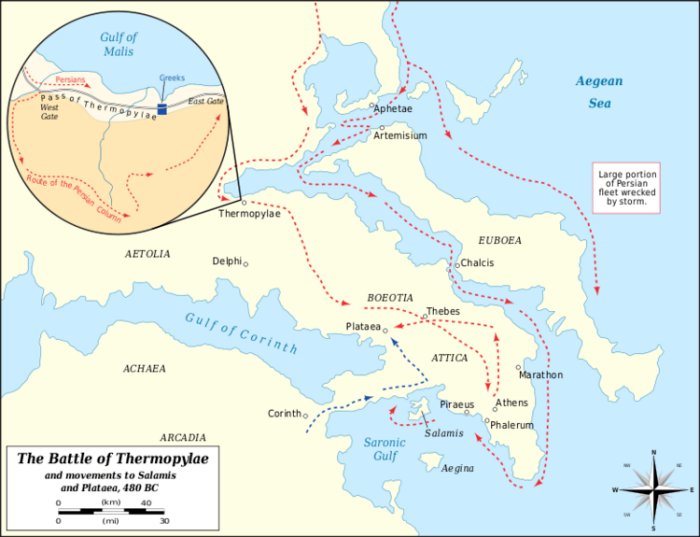Sparta And Legendary King Leonidas: The Heroes Of Thermopylae
David Tee - AncientPages.com - It was Herodotus who provided most of the information we have today about King Leonidas. According to the first Greek historian, King Leonidas descended from Hercules, the half-god half-man of Greek mythology.
Left: The Spartan army was an infantry-based army that fought using the phalanx formation. Credit: Public Domain - Right: Statue of King Leonidas. Credit: Public Domain
What seemed like unfortunate birth order, Leonidas was the third son of Anaxandrides. His father was a king who was forced to take a second wife to produce an heir. Leonidas finally ascended the throne in 488 BC after the deaths of his father and two older brothers.
But the birth order may have been fortuitous as this mean that Leonidas was to attend the rigorous public school all non-first-born sons were to attend. In this school, he received superior military training, which prepared him unknowingly for future events.
At the time of his succession, Leonidas was married to the daughter of his half-brother King Cleomenes. Plutarch records the following exchange to demonstrate the character Leonidas held:
"When someone said to him: 'Except for being king you are not at all superior to us,' Leonidas son of Anaxandridas II and brother of Cleomenes replied: 'But were I not better than you, I should not be king.'’
The State Of Sparta
Many people may think that Sparta was a legendary empire, but that would be far from fact. Greece was not a totally united country in the time of Leonidas. Each major city was called a city-state and ruled their own lands and citizens.
There was a general co-operation between the different cities that would come together in times of war. But, as the Peloponnesian war attests, they also quarreled and fought with each other. Sparta is well known for being focused on military might and was known to keep slaves, which freed their natural citizens up for military duty.
The practice was that when a boy reached 7 years of age, he was taken from his home and placed in military barracks. This new home provided them with a very rough upbringing to make them tough soldiers. It lasted for about 13 years or when the child reached the age of 20.
Jean-Pierre Saint-Ours, The Selection of Children in Sparta, 1785. Neoclassical imaging of what Plutarch describes. Credit: Public Domain
One of the harshest facts to come out about this way of living was that the older citizens of Sparta would kill those boys who could not be trained due to a disability. The boys were thrown into a pit by the elders, who judged the physical ability of each boy in question. Not all were condemned to death, just the weakest ones.
Girls had it a lot easier and were not under the threat of death or the removal of their homes. But they were expected to train, be athletic and compete in some competitions. Some even competed in the ancient Olympic Games’ chariot races.
Sparta And King Leonidas Go To War
It is estimated that Leonidas was about 60 when the Persian King Xerxes I invaded what is now known as Greece. Different historians have greatly exaggerated the numbers involved in his army. Herodotus recorded the figure at 1 million while other estimates put the size between 80,000 and 150,000 Persian troops.
An exact estimate cannot be known today. The much smaller Greek army, numbering around 8,000 men from the different Grecian cities, did not let this disparity discourage or weaken them.
Before King Leonidas went to gather more troops and confront Xerxes, he went to the Oracle at Delphi. Here he was given a prophecy concerning the war. The Oracle claimed that either Sparta would fall or the Spartan king would be killed.
When the two armies finally met, the Greeks took their position at Thermopylae, a very strategic mountainous area. Xerxes was hoping to spare a lot of bloodsheds and decided to wait four days before engaging the Greek army.
He also hoped that the size of his army would dishearten the Greek soldiers, and they would flee. Neither happened, and so Xerxes was forced to go to battle.
The Battle Of Thermopylae
Undaunted, the Greeks held their ground. Even after losing 2,500 men. But before they fell, the Greeks were able to kill roughly 20,000 Persians. Exact numbers may not be found.
As the story goes, a traitor to the Greeks led the Persians through a mountain pass that took them behind the Greek lines. Unable to defend two battlefronts, King Leonidas dismissed most of his troops except for the 300 of legend and 700 hundred Thespians.
A map indicating the location and military positions taken in the Battle of Thermopylae in 480 BCE between the Persian invading forces of Xerxes I against a small Greek force led by Spartan King Leonidas. Defending the pass for three days, the Greek force was ultimately defeated. Credit: Public Domain
With this number, King Leonidas stood his ground. Records show this was not a forced choice but one made out of the character Leonidas possessed. He decided to lose his life so the rest of Sparta could live.
We all know the ending of that story as King Leonidas, and his 1,000 men died heroically defending the land they loved.
Sparta Gets Revenge But Things Go Wrong
Sparta was not lost, and Leonidas's death made his son Pleistarchus king. Unfortunately, he was not old enough to rule on his own, and Pausanius was appointed his regent.
A year later, these two were able to get revenge for the devasting loss at Thermopylae by winning two key victories against the Persians at Salamis and Plataea. Because of their eventual victory, we are able to read about King Leonidas and his heroic men.
Although Sparta helped protect Greece from the Persian threat, things did not go well for Sparta after the war. Since Greek was still divided up into city-states, there were a lot of conflicts and disagreements between the different cities.
These disagreements led to more battles and wars over the next 150 years or so. At one point, Sparta made a financial alliance with their once enemy, the Persians. This helped Sparta defeat Athens, but eventually, the city-state turned on their Persian backers and successfully attacked them.
Successive battles took Sparta from a great military power to a lesser city-state that could not compete with the likes of Alexander the Great and the Roman legions.
Updated on January 5, 2023
Written by – David Tee AncientPages.com Staff Writer
Copyright © AncientPages.com All rights reserved. This material may not be published, broadcast, rewritten or redistributed in whole or part without the express written permission of AncientPages.com
Expand for referencesMore From Ancient Pages
-
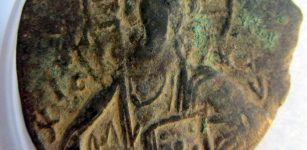 A 1,000-Year-Old Bronze Coin Accidentally Discovered By A Little Boy
Archaeology | Mar 12, 2020
A 1,000-Year-Old Bronze Coin Accidentally Discovered By A Little Boy
Archaeology | Mar 12, 2020 -
 New Method Distinguishes Between Egyptian And Palestinian Glass During Roman Times
Archaeology | Jul 13, 2020
New Method Distinguishes Between Egyptian And Palestinian Glass During Roman Times
Archaeology | Jul 13, 2020 -
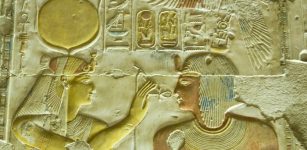 Hathor – One Of Ancient Egypt’s Greatest Female Deities
Egyptian Mythology | Jun 16, 2021
Hathor – One Of Ancient Egypt’s Greatest Female Deities
Egyptian Mythology | Jun 16, 2021 -
 Major Discovery Reveals Neanderthals In Italy Engaged In Plant Food Processing
Evolution | Jun 29, 2023
Major Discovery Reveals Neanderthals In Italy Engaged In Plant Food Processing
Evolution | Jun 29, 2023 -
 Yungang Grottoes: Marvellous Example Of Ancient Buddhist Rock-Cut Architecture
Featured Stories | Sep 15, 2015
Yungang Grottoes: Marvellous Example Of Ancient Buddhist Rock-Cut Architecture
Featured Stories | Sep 15, 2015 -
 Longstanding Cultural Continuity At Oldest Occupied Site In West Africa – New Study
Archaeology | May 4, 2023
Longstanding Cultural Continuity At Oldest Occupied Site In West Africa – New Study
Archaeology | May 4, 2023 -
 World’s Oldest Known Cave Painting – 45,000-Year-Old Depiction Of Wild Pig Discovered At Leang Tedongnge Cave
Archaeology | Jan 14, 2021
World’s Oldest Known Cave Painting – 45,000-Year-Old Depiction Of Wild Pig Discovered At Leang Tedongnge Cave
Archaeology | Jan 14, 2021 -
 Oldest Human Made Architectural Plans Detail Mysterious Desert Megastructures
Archaeology | May 18, 2023
Oldest Human Made Architectural Plans Detail Mysterious Desert Megastructures
Archaeology | May 18, 2023 -
 Ice Age Cycles Played A Key Role In Early Human Interbreeding
DNA | Oct 19, 2023
Ice Age Cycles Played A Key Role In Early Human Interbreeding
DNA | Oct 19, 2023 -
 Ancient Superhighways: 12,000-Year-Old Massive Underground Tunnels From Scotland To Turkey
Featured Stories | Jul 19, 2015
Ancient Superhighways: 12,000-Year-Old Massive Underground Tunnels From Scotland To Turkey
Featured Stories | Jul 19, 2015 -
 Previously Unkown Manuscript Reveals New Insight Into Medieval Christian Beliefs In England
Archaeology | Oct 26, 2021
Previously Unkown Manuscript Reveals New Insight Into Medieval Christian Beliefs In England
Archaeology | Oct 26, 2021 -
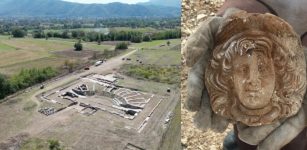 Roman ‘Backwater’ Challenges Major Assumptions About The Ancient Empire’s Decline
Archaeology | Dec 12, 2023
Roman ‘Backwater’ Challenges Major Assumptions About The Ancient Empire’s Decline
Archaeology | Dec 12, 2023 -
 Ancient Greek Goddesses Aphrodite And Artemis – Rivalry And Conflict Over Prestige Illustrated In Hippolytus By Euripides
Featured Stories | Jun 13, 2018
Ancient Greek Goddesses Aphrodite And Artemis – Rivalry And Conflict Over Prestige Illustrated In Hippolytus By Euripides
Featured Stories | Jun 13, 2018 -
 On this day in history: Li Shimin becomes Emperor Taizong of Tang, China – Sep 4, 626
News | Sep 4, 2015
On this day in history: Li Shimin becomes Emperor Taizong of Tang, China – Sep 4, 626
News | Sep 4, 2015 -
 Ancient Egyptian Men Used Eye Makeup For Many Reasons
Ancient History Facts | May 9, 2016
Ancient Egyptian Men Used Eye Makeup For Many Reasons
Ancient History Facts | May 9, 2016 -
 Ancient Scar Dragon Plaque And The Viking Boat To The Otherworld
Artifacts | Feb 4, 2016
Ancient Scar Dragon Plaque And The Viking Boat To The Otherworld
Artifacts | Feb 4, 2016 -
 On This Day In History: Famous British Archaeologist And Egyptologist Sir Flinders Petrie Born – On June 3, 1853
News | Jun 3, 2016
On This Day In History: Famous British Archaeologist And Egyptologist Sir Flinders Petrie Born – On June 3, 1853
News | Jun 3, 2016 -
 Beware Of The Night Marchers – Deadly Ghosts Of Warriors Who Kill With Just One Look
Featured Stories | Jul 23, 2019
Beware Of The Night Marchers – Deadly Ghosts Of Warriors Who Kill With Just One Look
Featured Stories | Jul 23, 2019 -
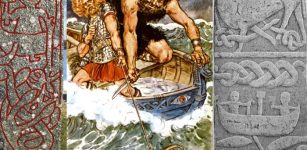 Thor And Tyr Journey To Hymir’s Hall To Steal Huge Cauldron – In Norse Mythology
Featured Stories | Jun 6, 2023
Thor And Tyr Journey To Hymir’s Hall To Steal Huge Cauldron – In Norse Mythology
Featured Stories | Jun 6, 2023 -
 Extremely Rare Roman Cavalry Parade Mask Discovered In Romania
Archaeology | Feb 8, 2023
Extremely Rare Roman Cavalry Parade Mask Discovered In Romania
Archaeology | Feb 8, 2023

